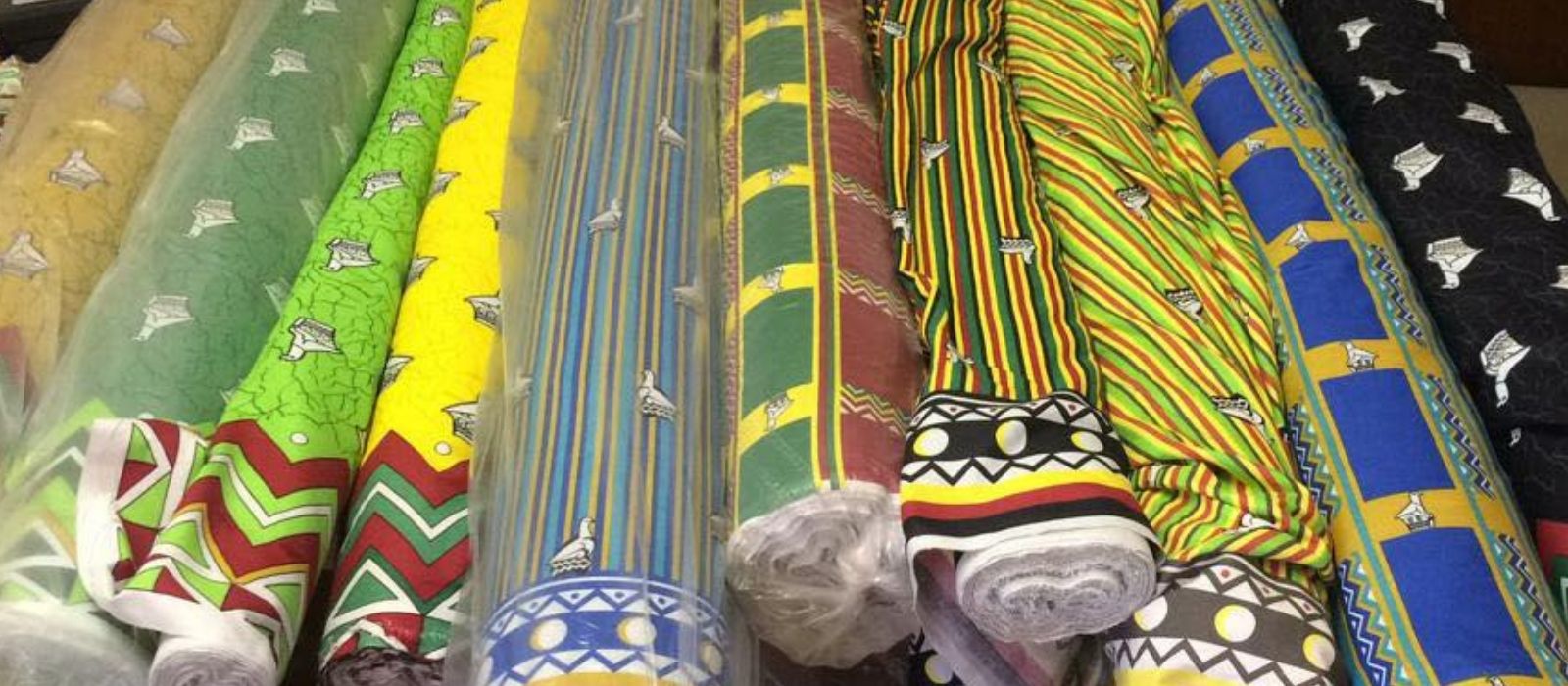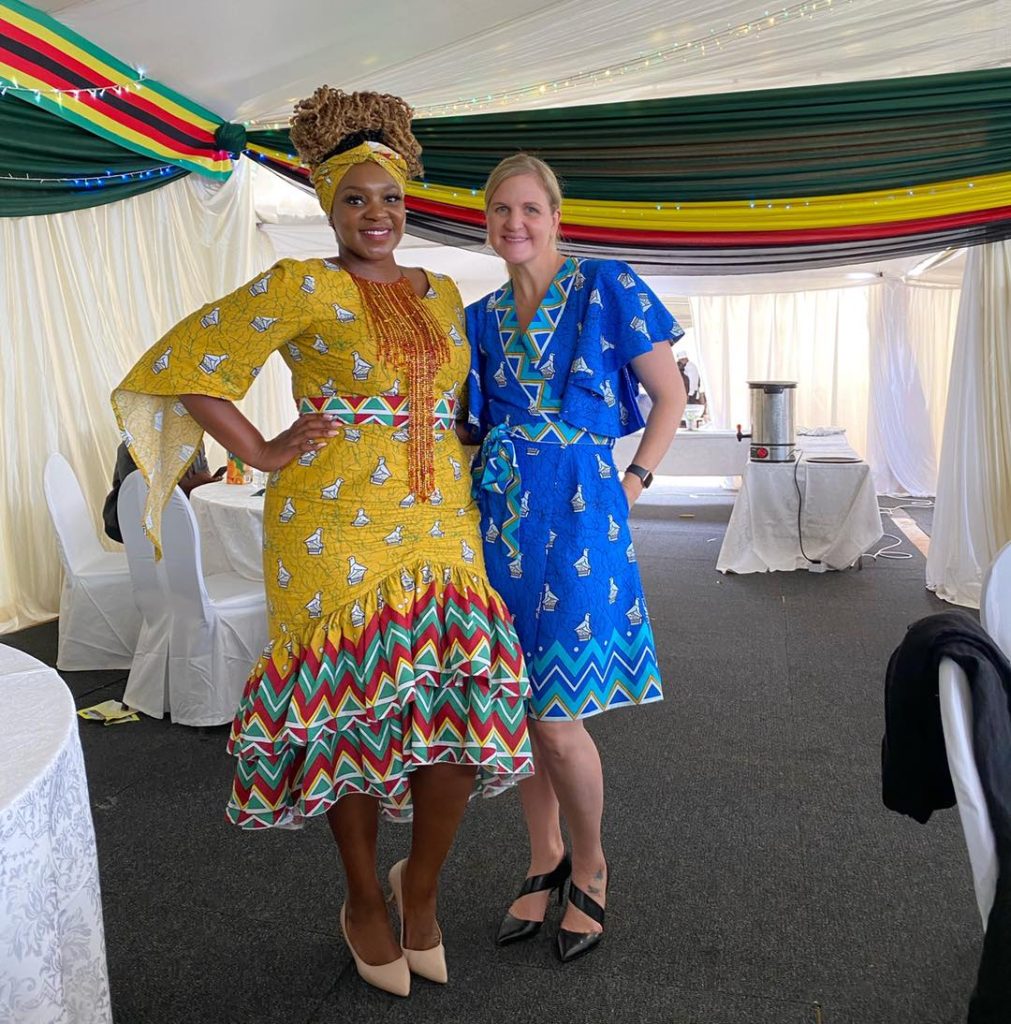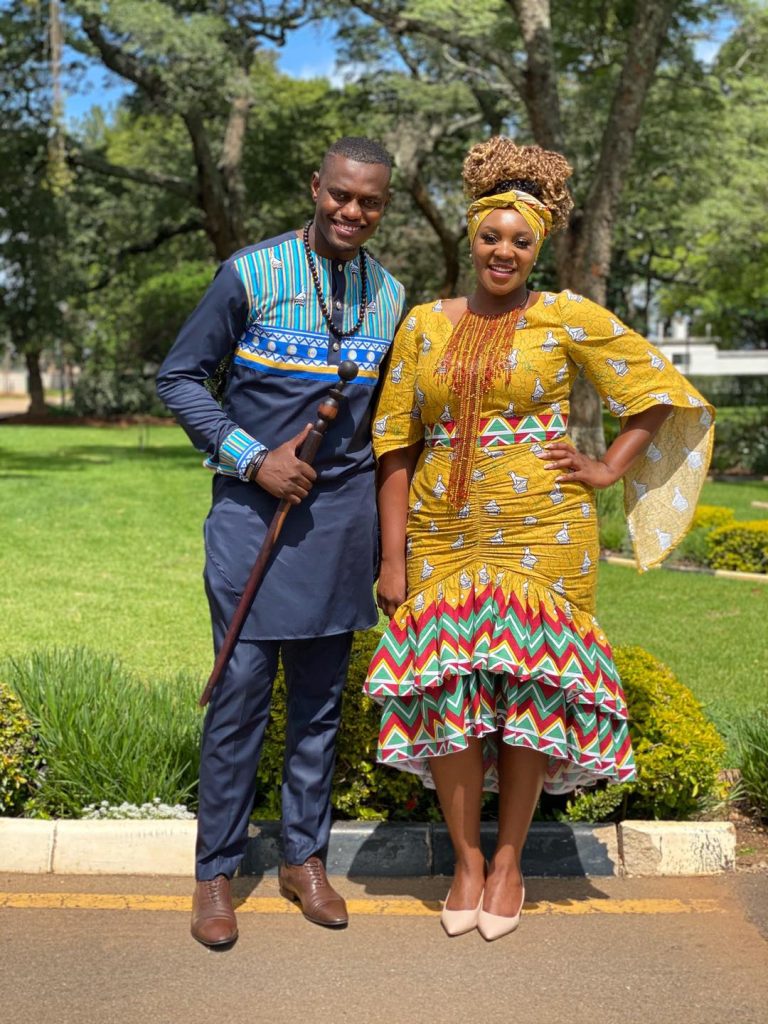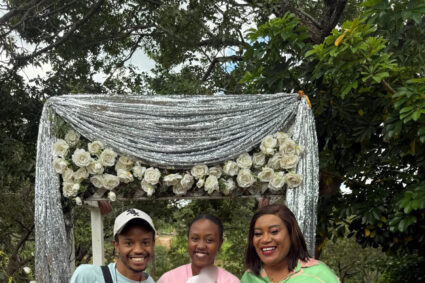
The issues surrounding our national costume or dress have been a hot topic lately. Is it the Zimbabwean bird that truly defines us as Zimbabweans, or is it more about how we wear our clothes and what fabrics represent our culture?
Recently, at roora celebrations and weddings, we’ve seen people dressed in geles and agbada, looking more Nigerian than Zimbabwean.
Some view it as a compliment when other nationalities adopt their clothing, cuisine, or music, seeing it as a sign that the culture’s custodians have successfully represented it. However, others believe that culture should be gatekept.


A recent viral picture of Guinean bridesmaids wearing ASO OKE sparked outrage from the Nigerian Yoruba Tribe, who assert that ASO OKE should only be worn by Yoruba brides, while ASO EBI is reserved for bridesmaids and family members. The Yorubas drew a comparison to someone getting married in a sari without any Indians involved, emphasizing that if we all adopt the same cultural practices, some cultures may eventually be forgotten.
Aside from weddings, which are universally common, we rarely see Nigerians cosplaying other cultures. Yoruba/Nigerian cultural attire has gained popularity because they have embraced and modernized it over time. Meanwhile, we continue to sideline our native clothes while promoting other cultures.
Looking at the trending traditional outfits across Africa, most are Nigerian-inspired. If this trend continues, it may lead to less diversity in African fashion.


